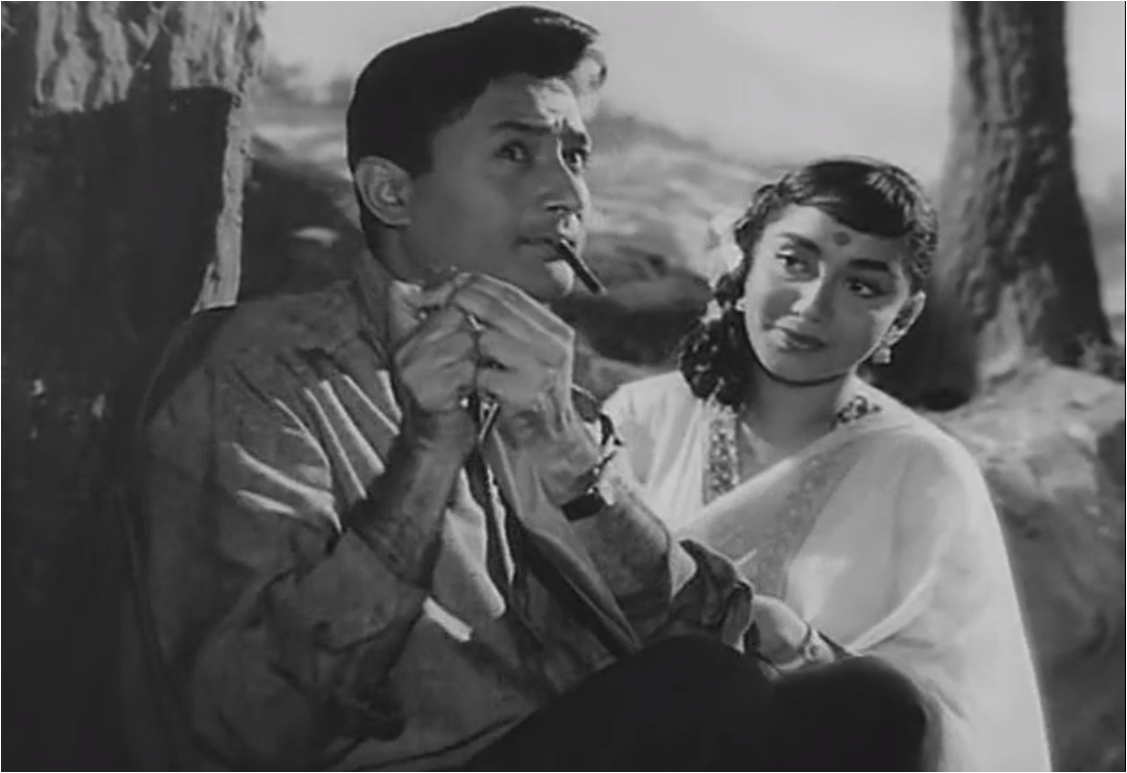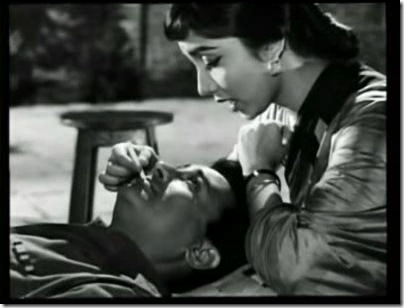
Recently, I sat down with a cup of lemon tea and watched The Lunchbox and Piku in one long stretch. To reassure myself that the world was still made up of serendipitous conversations tucked in fleeting moments when strangers connect and make soul contact. Sometimes via little notes that talk of the smell of spent youth, a recipe found in an old diary, the happiness quotient in Bhutan and how things are never as bad as they seem to be unless we are silent for so long that we forget even the things that we most want to remember. Or via a snatch of silence shared by two tired travellers as they look at the twinkling Ganga ghat together or when they walk around Kolkata, reliving her childhood. Or share an unspoken goodbye when he drives away but not before saying, “phone karoonga.” I also remembered Masaan that I loved deeply for its ability to tap into the sense of wonder that seems to be lost today because as I wrote a long time ago, “our world is off-centre. The young are old. The old are young. The clichés about youth and age have flipped their lids and innocence and cynicism have switched containers and age-groups. In shows like MTV Splitsvilla and Roadies, the wonder years are represented by the young willing to do anything to get somewhere, anywhere, with or without a sense of wonder.” It is hard to find wide, incredulous eyes, idealism about love and life in young people who address their significant others as ”meri bandi’‘ and ”bae,” a word that makes me grit my teeth. The Internet tells us what our relationship goals should be and how everything, even human-beings can be reduced to bullet points in articles like, ” 21 ways to show Bae, you are a keeper.” Poetry is dead.
**
I recently saw a post calling Kabhi Kabhi Mere Dil Mein Khayal Aata Hai as sexist because the poet says, ”Ki Jaise Tujh Ko Banaya Gaya Hai Mere Liye.” The writer obviously did not know anything about Sahir’s unflinching feminism. The poet who roamed the musty lanes where sex workers lived and died and wrote, “Yeh kooche, yeh nilaam ghar dilakashi ke
Yeh lutate hue karvan zindagi ke,” ( these streets, these auction houses of grace…where the caravan of life is looted) and called upon the ”muhafiz khudi ke” (the protectors of dignity) to see how women are debased by lust. The writer did not know the Sahir who wrote, “Aurat ne janam diya mardon ko, mardon ne usse bazaar diya,” (She gave them birth, they bought and sold her). Or the Sahir who once wrote, “Main apni jaan bhi de doon toh aitbaar nahin..ki tumse badhkar mujhe zindagi se pyaar nahin,” (If my life is not enough to win your trust..know that I love you more than life).
**
The writer did not know that Kabhi Kabhi was written as a ‘khayal,’ a longing for a woman who is now just a distant dream, a ‘humnafas,‘ the co-witness of the essence of life who is now gone forever and the poet knows it and says wistfully, ”Magar Yunhi Kabhi Kabhi Mere Dil Mein Khayaal Aata Hai.” Sahir once invited, as the story goes, Amrita Preetam and her lover Imroz, to his room for a few drinks. This was a woman who could have been a soulmate for life. This is what Amrita wrote about the encounter in her biography Raseedi Ticket, “When Sahir had come to Delhi, he invited me and Imroz to the hotel where he was staying. Sahir had placed an order for whisky and there were three glasses on the table. We returned deep into the night. And when it was almost midnight – Sahir called me up saying : ‘There are still three glasses lying on the table, and by turn I am sipping from each of them, and writing, ” These Empty Goblets Are My Companions.” (Mere Saathi Khaali Jaam ).”‘
**
This is what is lost. This capacity to love deeply. Mourn deeply. Understand, connect, process deeply. I sometimes feel I am still living the wonder years in my head because I still make space and time for unhurried leisure to internalize experiences, to live inside out rather than the other way around. To not be bound by anyone else’s perception of what is the right way to be. Like my 20 year old self, I still am not governed by technology or the Internet Gods to learn what to think and how to think. I have grown up , yes, yet a part of me has not. I had written this years ago, “I wonder at the those who shuffle the cards life has dealt them without sentimentality. I admire them for going after the things they want. For being unapologetically ambitious, for being alive to opportunity, to abundance. For being fearless and having more courage than we ever had. Many turn out to be productive, inspirational path-breakers. But how many of them have the solitude to listen, really listen to the songs they hear, to themselves, to others? This is the age of having more than you need. Making more money than you need, having more friends than you care for, hoarding more things than you have time to use, having more agendas than dreams, more cynicism than innocence.”
So when a Nida Fazli dies, a part of me dies too but then I take comfort that Dushyant Kumar and Bashir Badr were resurrected in Masaan just to show us what we have been missing in our lives. And then on some charmed days, you run into an old film that reminds you what cinema can do. Pull you out of your life to make you long for another.
**

Like Dev Anand’s Hum Dono about which I wrote a piece years ago but which resonates with me, still. So the film, I still believe, is not so much content as about feeling. It is not a water-tight classic. But though, the idea of mixed identities with war as a backdrop underwhelms, something else works. The directness and the simplicity of storytelling. And the MOMENTS. Like the one that opens the film. Anand (Dev Anand) Dev Anand is lounging in a set detailed with obviously fake trees and waiting for ladylove Meeta (Sadhana) to appear. When she does, there is no immediate bursting into a song or impetuous embracing. He just smiles to himself and loops a ribbon around his fingers. She smiles too and presents him with a cigarette lighter which plays what we now know as a melody beyond deconstruction and remixes. He smokes a cigar she has brought for him. Not a word is spoken. It is dark after a while and she thinks, he has dozed off and quietly tries to sneak away from his side, not realising that the ribbon he was playing with sometime back has actually been tied to her saree. One tug and he is awake and strains of “Abhi na jao chhod kar” resonate from the screen into your blood.
**
And Dev Anand shaving in the woods, looking at his reflection in a pond, the lighter going,“ding di ding di ding’‘ and then the anthem of the lonely traveller, “Main Zindagi Ka Saath Nibhata Chala Gaya.’‘ And the songs. Allah Tero Naam. Jahan Mein Aaisa Kaun Hai. And the poetry. “Kaun Rota Hai Kissi Aur Ki Khatir Ae Dost…Sabko Apni Hi Kissi Baat Pe Rona Aaya.” Sahir Ludhianvi. Jaidev. Mohammed Rafi. Find me one combination to beat this one today. Or a face that lights up the screen like Sadhana’s did. So yes, a lot has changed. But I know this for sure. It is okay to not change with the times. To not deconstruct life and remain guilelessly in love with it. To love the idea of love where, “Mujh Se Tum Juda Nahin..Tumse Main Juda Nahin.”
**






Reema ji,
I am a big fan of your writing, you are an inspiration and exceptional talent with your words, I am drawn to your articles, even when I do not know that you are the author behind it…
Your views, your thinking, I share and commend, and wish more shared the mindset. Your words flow, connect, tell their own story, You make me want to read what you write, believe what you say, get lost in thoughts and better my own writing.
I hope I can write half as well as you..
thanks so much karina 🙂